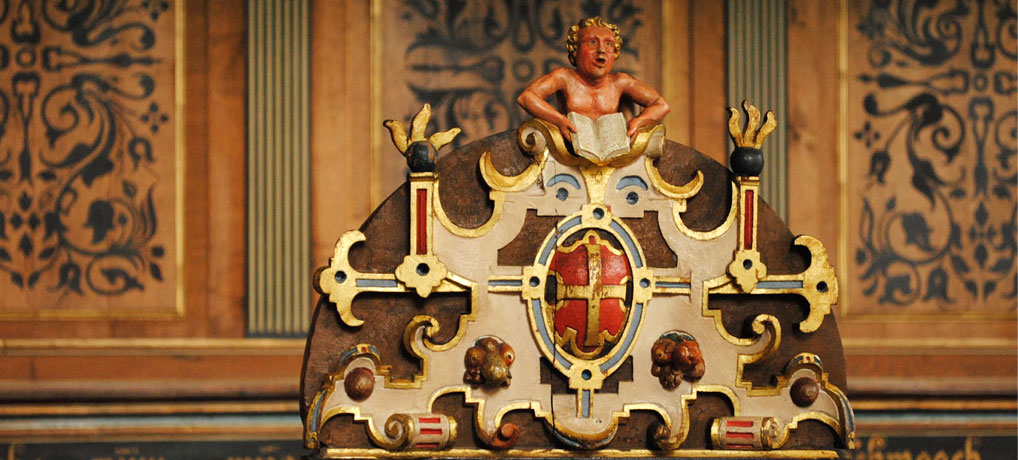Danish Chronicles ● Walking on a sea bed with Hamlet and a generous Magdalene
Over the past couple of weeks I have visited three places that, in my humble opinion, are worth some mentioning in this blog. Sometimes you need to lose yourself. Sometimes, instead, you find pearls and you string them into a satin thread. All you want to do, then, is to tell your adventures to your loved ones or to those who have nothing better to do than reading your words.
The first place I visited lies a few kilometers away from the city where I have been staying lately. Vallø Castle could be compared to a Danish history book: everything starts back in the 13th century but the story gets more interesting when in 1708 King Frederick IV buys it and presents it to Anne Sophie Reventlow who will soon become his queen. No diamonds, no flowers, no ceremonial carriages. My Love, I am going to give you a castle. Nobles are funny characters, aren’t they?
Sometimes, though, life is not gentle towards them either: when King Frederick IV dies in 1730, his queen is removed from Vallø and gets relocated to Clausholm Castle in Jutland, i.e. another piece of that geographical puzzle called Denmark. No more diamonds, my Love. Another castle for you now. Sorry about that. Another king comes, Christian IV. Another queen is loved, Sophie Magdalene whose generous and merciful name guides her to donate this precious gift to the Home of the Unwed Gentlewomen. From 1738 until 1976 Vallø was a rich and enormous hostel for rich and possible enormous Danish spinsters. In 1976 the constitution of the foundation changed and it now has a general charity purpose. Look at the pictures for a minute: there are some 4,000 hectares of land surrounding Vallø. I think I would have not been so generous. I would have kept the place for me and my princes. I would have organized gigantic BBQs, dress up parties, and endless skating competitions. My name, though, is not Magdalene.
The second strange place I visited is called and pronounced Faxe, as in the obsolete machinery that transmits papers and documents all around. Faxe is not an electronic tool: it used to be a sea bed, some 63 million years ago. Sharks, crocodiles, squids used to have a great time here, among lovely and fragile corals. Then unfortunately something happened: a meteorite, some delirium, everything was gone, party is over.
Remains of those nice animals are crashed and they come to form the white and pearl-like paths I came to walk on during a warm May evening.
Like at Stevns Klint, they say that if you can spare some time you can find some cool fossils: I have no time, again. One day I will find my fossil. While I am walking along the lakes that still embellish the site who is now a quarry, you can see bold seagulls, or Danes that are running naked into waters that are far too blue to be healthy. No matter what – I can say I walked on a sea bottom.
The third place is well known all around the world. A certain crazed prince is supposed to have spent his brief but intense life here: he hated his uncle, who killed his father by dropping poison into his ear; he loved and destroyed a very boring girl called Ophelia, that managed to kill herself in a rivulet; he spent a considerable amount of time with lads whose names are a bit obsolete to say the last: Horation, Yorick, Rosencrantz and Guildenstern. He also is supposed to have spent time walking around talking nonsense. I came to Kronborg Castle, or Helsingør, or Elsinore with one goal only: him. I could picture the scene until the very last detail: Kenneth Branagh would have been waiting for me smiling one irradiating smiles. Nobody was bloody there. Not even Yorick. Not even his useless skull. Voltaire said once that Hamlet was the work of a druken madman. He was shamefully jealous, although our William had .. copied his homework! Spaniards, Italians, Byzantines, even Saxo Grammaticus – everybody seems to have picked bits and pieces of a story whose main character was a dark, melancholic prince who destroys an entire court and annihilates the soul of his loved one. Nevertheless, I dare asking my readers: do you care? I don’t think I care too much. All I know is that our Willy knew what he was, but did not have any notion of what he could become. He would become Legend. Rosencrantz’s, Ophelia’s, Polonius’, Laertes’ thoughts become your thoughts. They enter your mind.
The rest is silence.
